Pros and Cons of Corian Shower Walls
When you install a new shower or renovate your old one, you have a choice to make — panels or tiles? Ceramic tiles are undoubtedly attractive but difficult to install and maintain. Plastic panels are easy to install and keep clean but look cheap. With Corian shower walls, you get the best of both worlds; stunning design that is hassle-free.
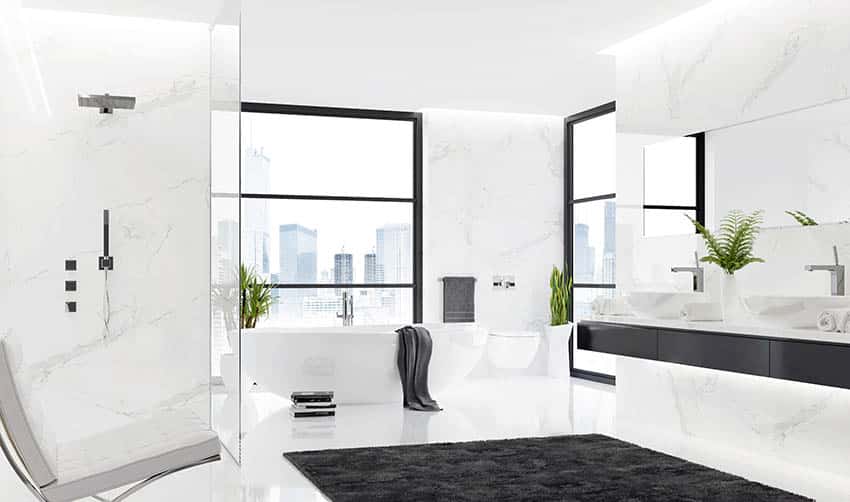
With this material, you get an attractive stone-like surface that looks and feels luxurious, but what is it?
What are Corian Shower Walls
In 1964, a chemical company called DuPont started producing a brand new product under the brand name Corian. It had been discovered the year before when a DuPont scientist named Donald Slocum had a breakthrough. He realized it was possible to bind particles of natural material together with acrylic resin. Even better, the resulting solid surface material was non-porous, resistant to stains and damage, and easy to repair.

Upload a photo and get instant before-and-after room designs.
No design experience needed — join 2.39 million+ happy users.
👉 Try the AI design tool now
Its first applications were kitchen counters and sinks, but it quickly moved into the bathroom, which can be used for flooring, countertops, sinks, or shower enclosures. For 30 years, DuPont held the exclusive rights to produce this wondrous new material. Like Xerox or Kleenex, the name brand (Corian) became synonymous with the product itself.
When the patent expired, other companies started producing and selling panels made using Slocum’s process. The manufacturers of these panels advertise them as ‘hard surface’ or ‘solid surface’ material. Although the method to produce Corian is no longer protected by a patent, DuPont has stayed relevant by developing new Corian-based products. Some have been designed to mimic natural materials such as granite and marble showers, while others are more contemporary.
Today, they hold the patent on the first translucent hard surface materials, which can be backlit for a futuristic look. Now let’s take a look at the pros and cons of Corian showers.
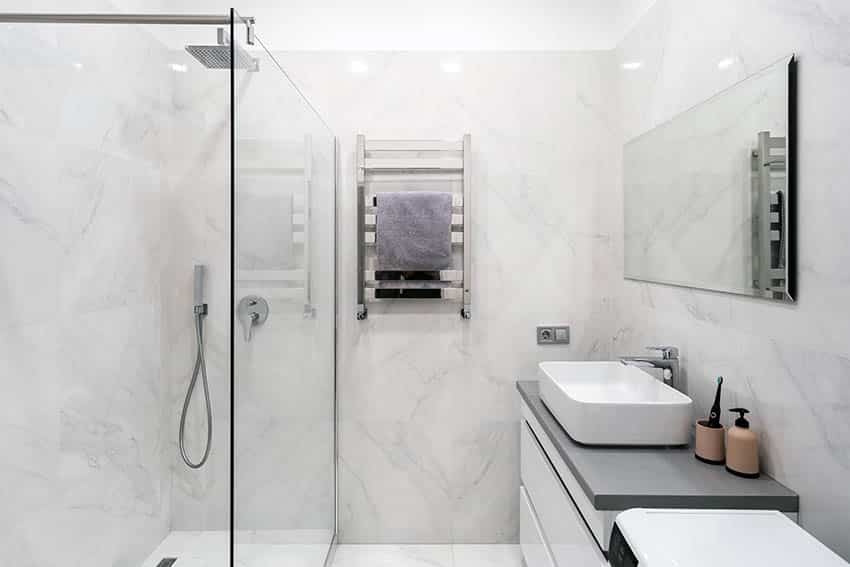
Corian Shower Pros
Waterproof – One huge benefit of Corian walls over ceramic tiles is that they are non-porous and, when installed properly, waterproof. Rather than seeping into the grout lines, water rolls off the surface.
No grout lines – That brings us to our second benefit: no grout lines. Grout is the bane of every homeowner’s existence. It looks great when installed, but due to its high porosity, it quickly becomes a home for mold and mildew. As anyone who has spent an afternoon scrubbing grout can attest to, it is time-consuming and difficult to keep clean. Many homeowners turn to cleaning professionals to restore that ‘like new’ look, but this is an additional expense.
Doesn’t need resealing – Corian panels don’t have grout, but they do have joints. These joints must be properly aligned and sealed to prevent water from penetrating to the drywall underneath. Unlike grouted tile, this material never needs to be resealed.
Easier to install – Compared with installing ceramic tile, hard surface bathroom shower walls can be installed much more easily and quickly. Rather than cutting tiles to fit a pattern, the panels will arrive at your home pre-cut to your specifications. Should you need to make an adjustment, it can be easily cut with a circular saw or even a jigsaw.
10 year guarantee – Corian-branded hard surface shower panels have a 10-year guarantee. This does not cover errors in installation. Most generic solid surface material has a similar guarantee, but check the manufacturer’s specifications to be sure.
Assortment of colors – With the range of patterns and colors available on the market, it’s a cinch to find a solid surface for your enclosure that will look great and last for years.
Can be restored – Should the surface sustain damage, it can be refinished to restore its appearance, unlike ceramic tiles, which need to be removed and replaced. Plastic shower walls can match hard surface products when it comes to keeping your drywall dry and are much less expensive. However, the low price shows in their appearance, making your enclosure look cheap.
Corian Shower Cons
More expensive than plastic – Solid surface shower walls, whether sold under the brand name Corian or not, do have a few drawbacks. While they are less expensive than engineered quartz, for example, they are significantly more expensive than plastic enclosure walls.
Not as customizable as tile – When Corian was first produced, it was only available in one color — white. Hard surface walls are now available in a stunning array of designs and colors. And yet, nothing can match the customizability of the tile. With tile, not only can you select the exact color and design you desire, you can incorporate borders and inlays. Solid surface shower walls are usually one color or design throughout, giving them a seamless and streamlined look that many people love.
Corian Wall Showers Popular Questions and Answers
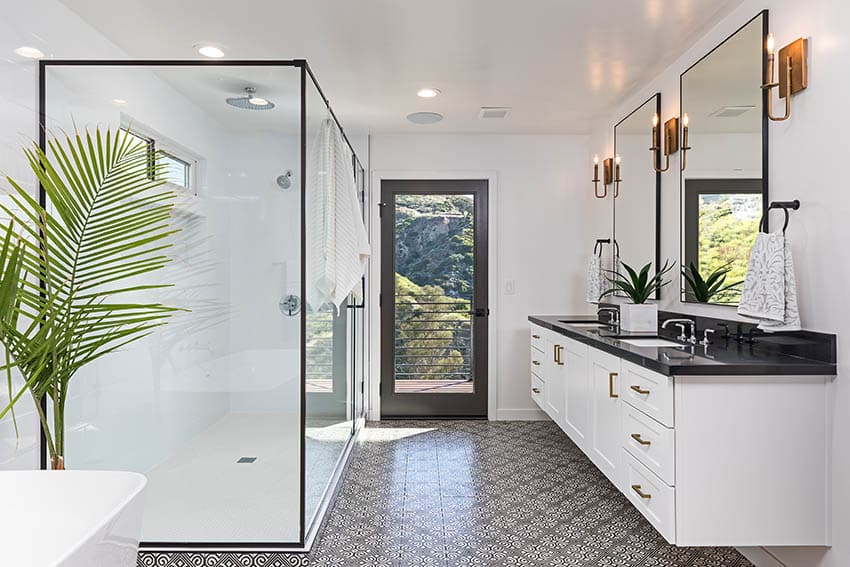
Is Corian Good for Showers?
Corian is not only good for shower walls, it’s perfect, especially if you intend to install it yourself. The installation only has three steps. First, hang moisture-resistant drywall. Then, apply an appropriate adhesive. Secure the panels, seal the joints, and you’re done. Corian is easy to install and will look great for years to come. Its non-porosity makes it the obvious choice for wet environments, and no area of your home is exposed to more moisture than your shower walls.
The material can also be thermoformed. By applying high heat to the material, it is possible to bend and curve it to fit the exact dimensions of your shower, no matter the specifications. If you’re looking for a low-maintenance and long lasting material for your walk-in shower walls, look no further than solid surface materials such as this.
How Much Does Corian In The Shower Cost?
Expect to pay between $42 and $65 per square foot for material. An average shower enclosure measures about 70 feet, with a depth of three feet, a width of four feet, and a height of seven feet. Labor to install the enclosure should cost approximately a few hundred to one thousand dollars. When you add all of this together, the average cost to fit a shower with Corian should fall between $3,100 and $5,550.
Is Corian a Good Choice for Bathrooms?
Corian is a beautiful and durable waterproof construction material, making it ideal for bathrooms. Some people question the advisability of using it for the shower pan, or floor of the shower due to its slick and slippery surface. However, a non-slip gripping texture can be added to it, making it perfect for shower floors and walls, shower benches, and countertops.
Did we miss any pros and cons of Corian shower walls? Let us know in the comments section to tell us what you think. For more related designs visit our page on bathroom remodel ideas.

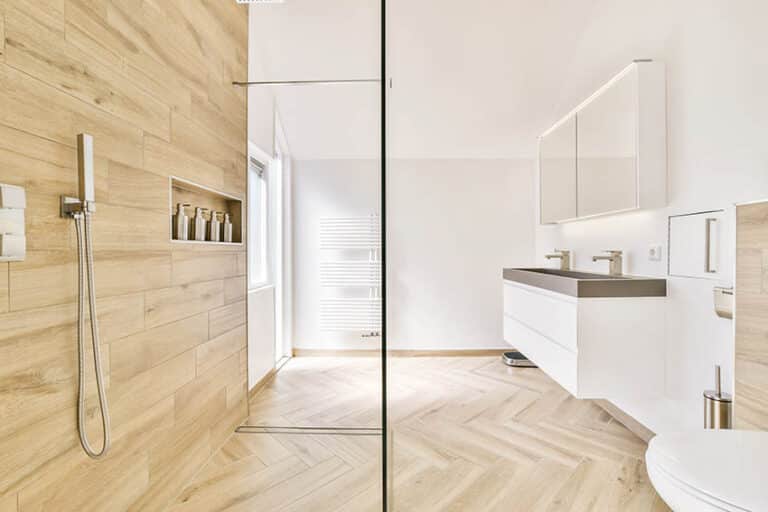
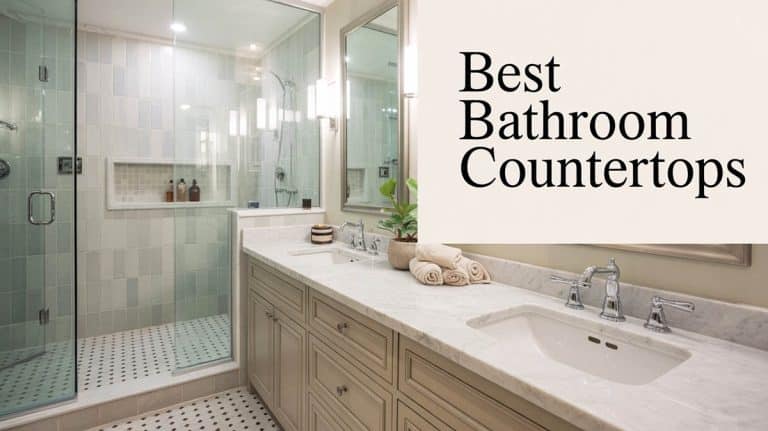
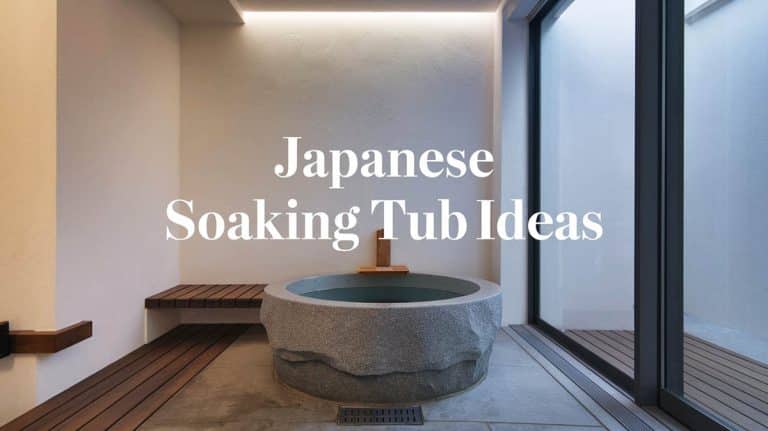
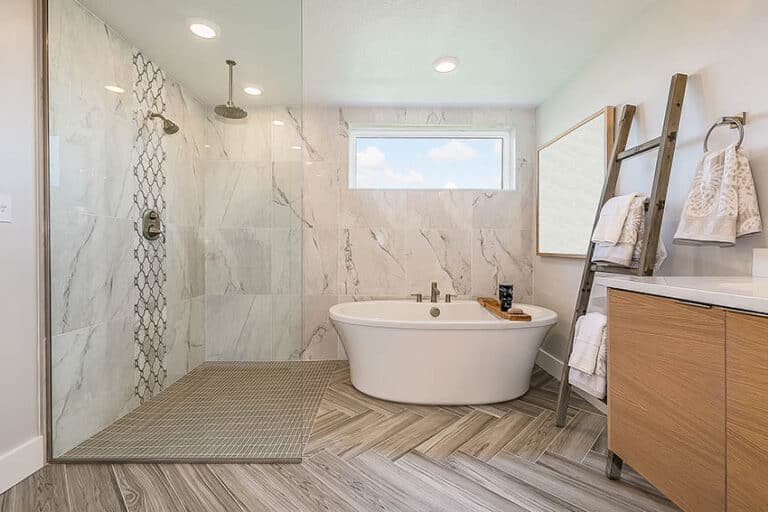
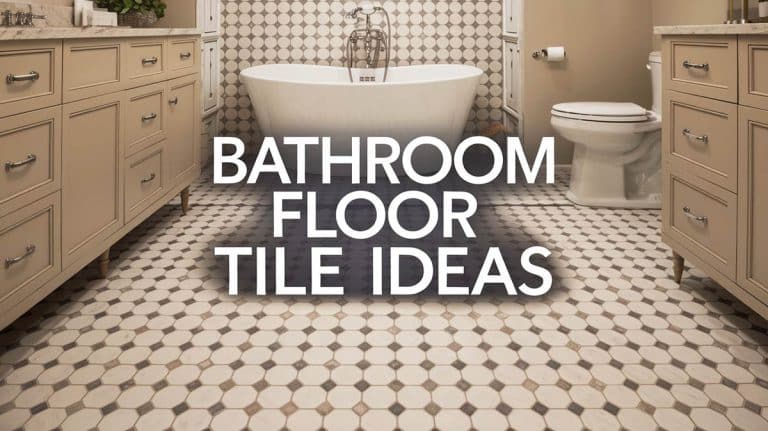

We installed coriander panels over a tub in 1978. Maintenance-free until we moved in 20/12. Would like to remodel current bathrooms, replace tub with shower, panel small shower in guest room. Question is: We have hard water, so will water scale show on walls? I wipe down the walls, it husband doesn’t. We are seniors living in retirement community. Also can fold-down shower seat be installed, along with safety bars.
Michelene Kelly
Hard water will generally build-up and show on Corian as it does with practically any shower surface. The best thing you can do to protect against this is to install a water softener.
Corian recommends that those with hard water use Viakal gel to the affected area and leave it on for 2 to 4 minutes. After that time you can remove the gel with a damp microfiber cloth. Using another clean micorfiber cloth rinse the area with water.
Our shower stall has Corian walls. They are a challenge to keep clean because mildew/mold collects under the seal(s) at the joins.We wipe everything down after a shower and have tried every product to attack the mildew/mold, including the common mold/mildew cleaners (Lysol and other brands) and Wet & Forget (recommended by the host of a popular home show on the radio). I have taken a brush to the areas but they are ineffective because you can see that the mildew/mold is UNDERNEATH the sealant, not on top of it. Is our only solution to physically remove the sealant, piece by piece, and reapply it? This problem has caused us to regret agreeing to the Corian walls.
You can sand it, in order to resurface it, so maybe you can sand the joints and shine them up, and clean it out and then seal it again, properly so that nothing can get under it?
I’m interested in the answer to this question, too.
one COMMENT SAID THAT MOLD IS COLLECTING UNDER SEAMS. ISN’T THAT AN INSTALLATION PROBLEM?
Is it advisable to use Corian on the bathroom floor itself? (for a wet room look)
The comment above isn’t correct if corian used everywhere and it’s installed properly. There is no seam when corian connects to corian that can get damp and mold. Need both corian walls and corian shower pan. If shower floor is tile then can have same issues that affect tile installs. Try epoxy grout